Wine industry disappointed with Supreme Court ruling
KELOWNA, April 19, 2018 – The British Columbia Wine Institute and its members today expressed disappointment with the Supreme Court of Canada’s ruling on Her Majesty the Queen v. Gerard Comeau. The case challenged restrictions on interprovincial trade, an issue the BCWI and the Canadian Vintners Association (CVA) has been working on for over a decade.
This morning at 9:45 a.m. (EST) the Supreme Court of Canada has ruled on Her Majesty the Queen v. Gerard Comeau. The ruling states the following: Section 121 does not impose absolute free trade across Canada.
“The Court’s ruling today is disappointing for the BC wine industry.” Said Miles Prodan President & CEO of the BCWI. “We will continue our work both directly and through the CVA with the federal / provincial / territorial governments’ Alcoholic Beverages Working Group, industry, governments and the provinces to remove the barriers and allow winery direct shipping to customers across Canada.”
“We respect the Court’s ruling but are disappointed at this missed opportunity to remove interprovincial trade restrictions,” said Dan Paszkowski, President & CEO of the CVA. “Removing restrictions would have opened the door to allowing consumers to order wine for direct delivery to their home from any Canadian winery located in any province. We call that Direct-to-Consumer, it is something nine out of 10 Canadians believe should be permitted, and we now eagerly await the provinces making this choice available to their citizens.”
In October 2012, Gerard Comeau of New Brunswick purchased beer and spirits in Quebec and drove back to New Brunswick. He was charged with possessing liquor purchased from outside the province in quantities that exceeded the province’s prescribed limit, an offence under section 134 of the New Brunswick Liquor Control Act. The trial judge held that section 134(b) of the Liquor Control Act constitutes a trade barrier (violating section 121 of the Constitution Act, 1867) and dismissed the charge against Mr. Comeau. The case subsequently made its way to the Supreme Court.
“It’s important to recognize that interprovincial trade barriers affect a range of industries, including wine.” Says Paszkowski.
Unfair interprovincial trade barriers have impeded Canada’s wine industry growth and prevented consumers from purchasing the Canadian wines of their choice.
“This morning’s ruling is disappointing for our industry. Every wine producing nation in the world has direct sales within its own country” said Tony Stewart, Proprietor & CEO of Quails’ Gate Winery. “Canada needs to correct this so that we can start to create a level playing field with the rest of the world.”
Canada’s wine industry had seen the ruling as a way to open the doors to direct-to-consumer wine purchases across the country, something consumers believe should be done.
Direct-to-Consumer would lead to important growth for the country’s highest value agricultural industry. Indeed, free interprovincial trade would positively impact the economy across the country. Industry research shows that for every $1.00 spent on Canadian wine in Canada, $3.42 in Gross Domestic Product (GDP) is generated across the country.
– 30 –
FAQs are linked for your consideration,
About British Columbia Wine Institute
Since 1990, the BC Wine Institute has played a pivotal role in taking BC’s wine industry from a vision to an internationally recognized niche region producing premium wines and providing exceptional wine tourism experiences. The BC Wine Institute markets the wine and regions of BC; delivers quality trade, media and consumer tastings; and acts as the voice of BC’s wine industry by advocating to government on behalf of industry that contributes $2.8 billion in provincial economic growth annually.
The BC Wine Institute represents all wineries in British Columbia to grow the premium market share for the Wines of British Columbia, while driving awareness of our world-class wines and tourism product – currently drawing 1,000,000 visitors with $600 million in tourism and tourism employment related economic impact every year. For more information about BC Wine Institute’s programs and services, please visit: WineBC.com.
For details on BC VQA Wine and the Wines of British Columbia, go to WineBC.com, like the Wines of British Columbia Facebook page and follow @WineBCdotcom on Twitter.
About the Canadian Vintners Association
Canadian Vintners Association (CVA), the national voice of wine in Canada,advocates for the national wine industry at the federal and international levels. CVA is dedicated to improving the business success and return on investment for individual wineries, while assuring the continued growth and prosperity of the entire Canadian wine industry.
@cvawine
www.facebook.com/CVAwine/
About the Alcoholic Beverages Working Group
The Canadian Free Trade Agreement (CFTA), which came into effect on July 1, 2017, established an Alcoholic Beverages Working Group (ABWG) made up of federal, provincial, and territorial officials. As noted on the CFTA website, “the ABWG is tasked with identifying specific opportunities and recommendations to further enhance trade in alcoholic beverages within Canada, while being mindful of social responsibility and international obligations. The working group shall submit its recommendations to the Committee on Internal Trade by July 1, 2018.”
INTERVIEW INQUIRIES:
Laura Kittmer
Media Relations Manager
T. 250 762 9744 ext 108
M. 250 317 8688
lkittmer@winebc.com






